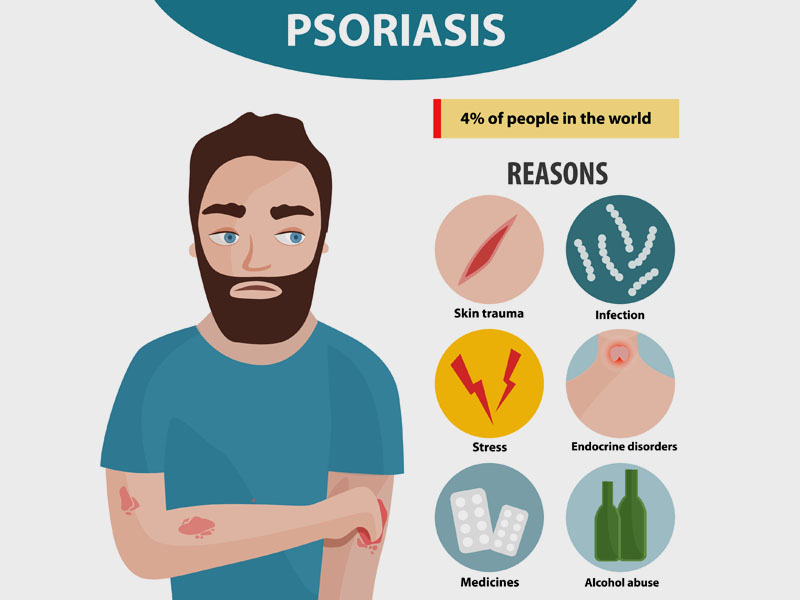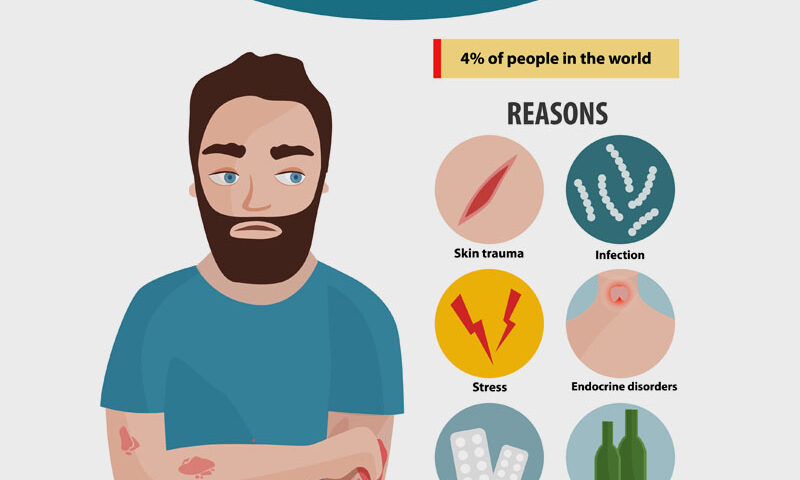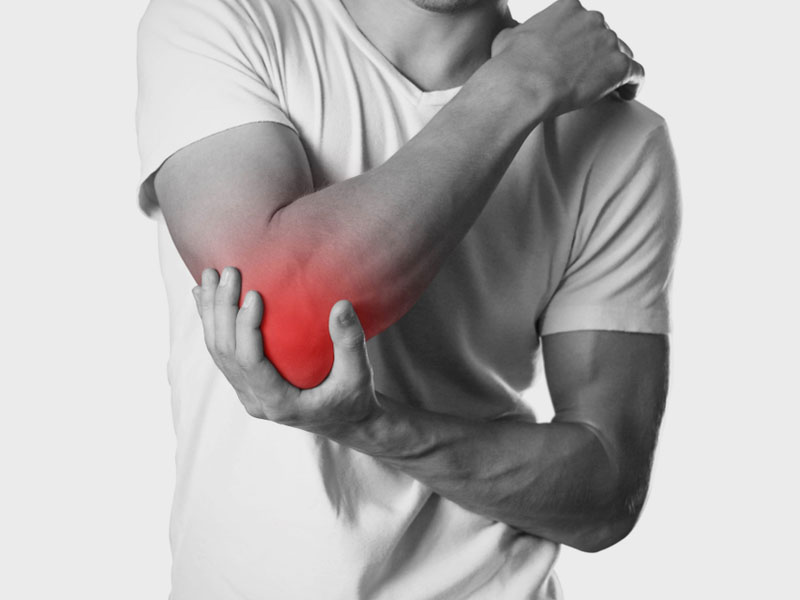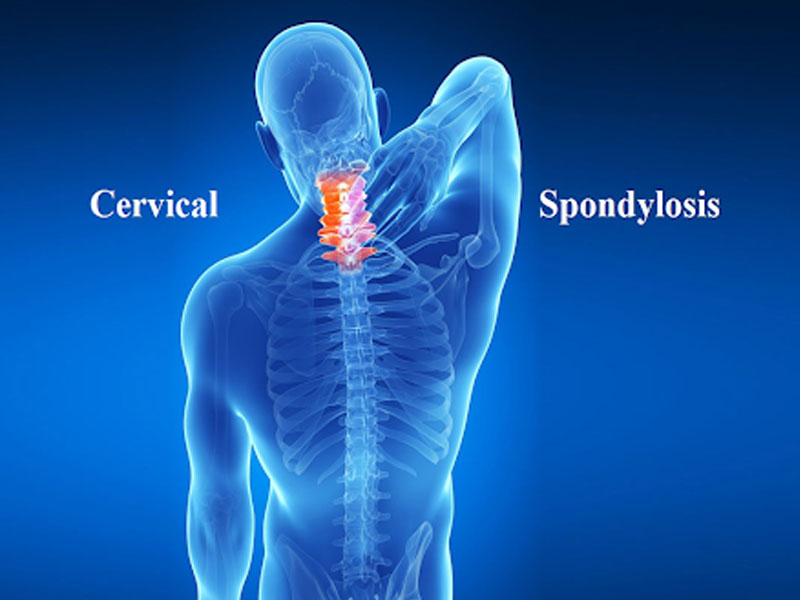Ayurvedic Treatment for Psoriasis
Ayurvedic Treatment for Psoriasis
Psoriasis is a chronic skin condition that affects millions of people worldwide. It is characterised by the rapid buildup of skin cells, leading to red, itchy, and scaly patches on the skin's surface. While the exact cause of psoriasis remains unknown, it is believed to be an autoimmune disorder, wherein the immune system mistakenly attacks healthy skin cells. Ayur Healthcare, offers holistic Ayurvedic treatments for psoriasis that aim to provide relief from symptoms and improve overall well-being.

What is Psoriasis?
Psoriasis is a non-contagious skin disorder that affects both men and women of all ages. It can manifest in various forms, from mild to severe, and commonly appears on the elbows, knees, scalp, and lower back. The condition's exact cause is not fully understood, but it is believed to be related to genetic, environmental, and immune system factors. Psoriasis flare-ups can be triggered by stress, infections, certain medications, or changes in weather conditions.
Etiological Factors of Psoriasis
The development of psoriasis is influenced by a combination of factors, including genetic predisposition and environmental triggers. Individuals with a family history of psoriasis are at a higher risk of developing the condition. Certain lifestyle choices, such as smoking, excessive alcohol consumption, and a sedentary routine, may also contribute to its onset or aggravation.
Symptoms of Psoriasis
Psoriasis presents a range of symptoms, which can vary depending on the type and severity of the condition. Common signs include red, inflamed patches covered with silvery scales, itching, burning sensation, and dry skin. In some cases, psoriasis can lead to painful joint inflammation, known as psoriatic arthritis.
Types of Psoriasis
There are several types of psoriasis, each with its own distinctive characteristics. These include:
Plaque Psoriasis: The most common type, characterised by raised, red patches with silver-white scales.
Guttate Psoriasis: Often triggered by bacterial infections, it appears as small, dot-like lesions on the skin.
Inverse Psoriasis: Found in skin folds, such as the armpits, groin, and under the breasts, it appears as smooth, red patches.
Pustular Psoriasis: Characterised by pus-filled blisters, it can be localised or widespread.
Erythrodermic Psoriasis: A severe and rare form that covers large areas of the body with red, peeling skin.
Complications in Psoriasis
Psoriasis can have a significant impact on an individual's physical and emotional well-being. Besides the discomfort of the skin lesions, people with psoriasis may experience social isolation, low self-esteem, and depression. In some cases, the joint inflammation associated with psoriatic arthritis can lead to joint damage and disability.
Ayurvedic Concept and Management of Psoriasis
Ayurveda, the ancient Indian system of medicine, offers a holistic approach to manage psoriasis. According to Ayurvedic principles, psoriasis is believed to result from an imbalance in the body's doshas (vata, pitta, and kapha). Ayurvedic practitioners at Ayur Healthcare focus on restoring this balance through personalized treatment plans that include dietary changes, lifestyle modifications, herbal therapies, detoxification procedures, and stress management techniques.
Precautions to Avoid Aggravating Psoriasis
While undergoing Ayurvedic treatment for psoriasis, it is essential to take certain precautions to prevent flare-ups and aggravation. These may include:
Avoiding Triggers: Identifying and avoiding triggers that worsen the condition, such as stress, infections, and certain foods.
Protecting the Skin: Keeping the skin moisturised, using mild soaps, and avoiding harsh chemicals or fragrances.
Managing Stress: Practicing relaxation techniques like yoga and meditation to reduce stress levels.
Maintaining a Healthy Diet: Consuming a balanced diet rich in fresh fruits, vegetables, and whole grains while limiting processed foods and alcohol.
Diet and Lifestyle in the Treatment of Psoriasis
Ayurveda places great emphasis on the role of diet and lifestyle in managing psoriasis. Ayurvedic practitioners at Ayur Healthcare may recommend dietary changes based on an individual's dosha constitution and the severity of the condition. A diet that promotes detoxification and strengthens the immune system is typically advised. Additionally, incorporating anti-inflammatory foods and avoiding trigger foods is essential in managing psoriasis effectively.
Recommendation of Beneficial Exercises
While psoriasis is a skin condition, regular physical activity can play a supportive role in managing the condition. Engaging in low-impact exercises, such as walking, swimming, or yoga, can help reduce stress, promote overall well-being, and support the body's natural healing process.
Conclusion
Psoriasis is a complex skin condition that requires personalised and holistic care to manage effectively. Ayur Healthcare, based in Parramatta, Sydney, offers Ayurvedic treatments for psoriasis that focus on addressing the root cause and promoting overall wellness. However, it is important to note that autoimmune disorders like psoriasis can resurface at any point in life, even after positive treatment results. Hence, continuous self-care and consultation with qualified healthcare practitioners are essential to lead a healthy and fulfilling life.
Disclaimer
At Ayur Healthcare, our practitioners can only provide their best effort in offering Ayurvedic treatment based on their expertise and knowledge. We do not claim to cure any condition, including psoriasis. The content provided on this website is for educational purposes only and should not be considered as medical advice or a substitute for professional healthcare. Individual results may vary, and it is essential to consult qualified healthcare practitioners for personalised treatment plans and medical advice.




